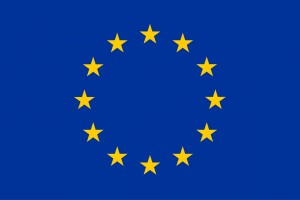Data Forum on Harmonization and Uses of European Microdata
Centre d’Estudis Demogràfics, Barcelona 18-19 January 2018
Participation on invitation
Organised in collaboration with the Ingrid-2 Project
The INGRID2 project has received funding from the European Union’s Horizon 2020 research and innovation programme under grant agreement No 730998.
The Data Forum on Harmonization and Uses of European Microdata will bring together representatives from European Statistical Institutes and researchers with strong experience in cross-national comparative data to discuss innovation and solutions to integrate labour force survey microdata for the study of poverty, work, and living conditions.
Three modus operandi for entrusting labor force surveys into the Global project will be considered at the meeting:
- Eurostat versions of the surveys from the member state statistical office
- National versions directly from the member state statistical office
- Eurostat versions from Eurostat instructed by the corresponding member state statistical office
Wednesday, 17 January 2018
20:30 Welcome dinner
C/ Muntaner 70-72
Thursday, 18 January 2018 Mir & Meifrén Rooms. 1st Floor. H10 Casanova
09:30-10:00 Registration
Session 1: 10:00-11:30 Harmonized EU Microdata
- Albert Esteve (CED/IECM), Integrated European Population Microdata
- Guy Van Gyes (HIVA-KULeuven), InGRID: an integrating European social sciences research infrastructure
- Steven Ruggles (Institute for Social Research and Data Innovation, University of Minnesota), The IPUMS Project: New directions
- Matt Sobek (Minnesota Population Center), IPUMS microdata harmonization
11:30 -12:00 Coffee break
Session 2: 12:00-13:30 Crossnational research based on EU Microdata I
- Aleksandra Bujnowska (Eurostat), Access to European microdata for scientific purposes
- Lara Cleveland (Minnesota Population Center), The value of harmonized population microdata for research
- Yves Perardel (ILO), Harmonizing and processing LFS microdata: the ILO approach
- Fabrice Murtin (OECD), Measuring the Quality of the Working Environment: the OECD Approach
Light lunch 13:30-14:30
Session 3: 14:30-15:45 Entrusting population microdata into IEPM/IPUMS
- Eric Schulte (Statistics Netherlands), The Dutch Census IPUMS files of 1960, 1971, 2001 and 2011
- Sanna Malinen (Statistics Finland), New Census sample file from Finland
- David Tesar (Swiss Federal Statistical Office), Switzerland’s Structural Survey Microdata – Challenges in the International Context
Session 4: 16:00-17:30 Crossnational research based on EU Microdata II
- Hans Dubois (Eurofound), Characterising the inactive population
- Theodor Sparreboom (ILO), Microdata for Migration Research
- Jörg Langbein (World Bank), Comparative analysis of harmonized household surveys for World Bank job diagnostics
- Diederik Boertien (CED) and Pinar Koksel (CED), Living arrangements of the unemployed across Europe
18:00 – Guided tour in Barcelona
20:30 – Social Dinner
Restaurant Senyor Parellada. C/ Argenteria 37
Friday, 19 January 2018 Mir & Meifrén Rooms. 1st Floor. H10 Casanova
Session 5: 9:30-11:00 Crossnational research based on EU Microdata III
- Catherine Hakim (Civitas, the London Think Tank), When is a job not a job? Hidden traps in cross-national comparisons
- Mariona Lozano (CED) and Elena Vidal (University of Genève), Men and women’s working life expectancies in Europe across time: measuring gender gaps and cross-country differences
- Michael Gebel (University of Bamberg), Youth unemployment in Europe: Evidence from multilevel analyses using EU-LFS microdata
- Milan Bouchet-Valat (INED), Educational and socioeconomic homogamy, and level of development in Europe: a sub-national analysis based on the EU-LFS
11:00 -11:30 Coffee break
Session 6: 11:30-13:00 Entrusting LFS microdata into IEPM/IPUMS
- Federica Pintaldi (ISTAT), Labour Force Survey in Italy (Istat)
- Sharon Bolton (UKDA), The EU-LFS at the UK Data Service
- Vincent Dale (Labour Statistics Division, Statistics Canada), Labour Force Survey in Canada
Conclusions 13:00-13:30
Light lunch 13:30-14:30
Confirmed participants
| National Statistic Offices | ||
| Instutition | Country | Participant’s Name |
| Labour Statistics Division, Statistics Canada | Canada | Vincent Dale |
| Hellenic Statistical Authority | Greece | Dimitrios Vatikiotis |
| Statistics Finland | Finland | Sanna Malinen |
| Hungarian Central Statistical Office | Hungary | Erika Csaba |
| Central Statistics Office | Ireland | Brendan Murphy |
| Italian National Institute of Statistics | Italy | Federica Pintaldi |
| Statistics Netherlands | Netherlands | Eric Schulte |
| Central Statistical Office of Poland | Poland | Janusz Pappelbon |
| National Institute of Statistics | Romania | Ruxandra Moldoveanu |
| Federal State Statistics Service of the Russian Federation | Russian Federation | Maria Nazimkina |
| Swiss Federal Statistical Office | Switzerland | David Tesar |
| UK Data Archive | United Kingdom | Sharon Bolton |
| Office for National Statistics | United Kingdom | Debbie Curtis |
| Researchers, Institutions and Universities | ||
| Centre d’Estudis Demogràfics (CED) | Spain | Diederik Boertien |
| Institut National d’Études Démographiques (INED) | France | Milan Bouchet-Valat |
| Eurostat | Eurostat | Aleksandra Bujnowska |
| Minnesota Population Centre | USA | Lara Cleveland |
| Centre d’Estudis Demogràfics (CED) | Spain | Teresa Antònia Cusidó |
| European Foundation for the Improvement of Living and Working Conditions | Eurofound | Hans Dubois |
| Centre d’Estudis Demogràfics (CED) | Spain | Albert Esteve |
| Centre d’Estudis Demogràfics (CED) | Spain | Joan García Román |
| University of Bamberg | Germany | Michael Gebel |
| Civitas, the London think tank | UK | Catherine Hakim |
| Minnesota Population Centre | USA | Kristen Jeffers |
| World Bank | World Bank | Jörg Langbein |
| Centre d’Estudis Demogràfics (CED) | Spain | Mariona Lozano |
| Centre d’Estudis Demogràfics (CED) | Spain | Antonio López Gay |
| OECD | OECD | Fabrice Murtin |
| International Labour Organization (ILO) | ILO | Yves Perardel |
| Institute for Social Research and Data Innovation, University of Minnesota | USA | Steve Ruggles |
| Centre d’Estudis Demogràfics (CED) | Spain | Nathalie Schol |
| HIVA-KU Leuven | Belgium | Ine Smits |
| Minnesota Population Centre | USA | Matt Sobek |
| International Labour Organization (ILO) | ILO | Theodoor Sparreboom |
| Centre d’Estudis Demogràfics (CED) | Spain | Anna Turu |
| HIVA-KU Leuven | Belgium | Guy Van Gyes |
| University of Genève | Switzerland | Elena Vidal |
The Data Forum is organised by the Centre d’Estudis Demogràfics (CED)
The conference will take place at hotel H10 Casanova, Barcelona
Gran Via de les Corts Catalanes, 559, 08011 Barcelona
Meeting room at the hotel: Mir and Meifren
IPUMS/CED Harmonization of European Labour Force Survey Metadata and Microdata
IPUMS Minneapolis and CED Barcelona propose to harmonize Labour Force Surveys of cooperating European National Statistics Offices in a global, scientific use, extract management system.
The IPUMS/CED initiative complements conventional, whole-file dissemination with a twenty-first century system offering:
- open access interactive metadata
- restricted access harmonized microdata via be-spoke, pooled extracts—for selected countries, years, variables, and even subpopulations—tailored precisely to the needs of each individual researcher or research team.
IPUMS/CED extends the highly successfully Census Microdata Series, currently encompassing 85 countries, with a world-wide Labour Force/Household Series piloted for 3 countries: India, Nigeria, and the USA.
Cooperating National Statistical Office entrust data directly to IPUMS/CED under the terms of a uniform Memorandum of Understanding endorsed by more than 100 NSOs worldwide (see example below).
The IPUMS/CED initiative adds value in many ways. For example:
- Pooled, custom datasets. Users can create extracts that pool data into a single file containing only their desired variables and including as many samples and countries as they wish. They need not download potentially hundreds of files to conduct largescale comparative research.
- Easy exploration of metadata. Integrated variable documentation provide descriptions, comparability information, codes, and frequencies in one place for all samples. Users may easily assess whether particular categories have sufficient cases for their research or to identify major complicating factors due to some peculiarity of a particular sample or country. Questionnaire wording is associated via metadata to the relevant variables, so users can easily see how different wordings might affect the data in specific time periods or countries.
- User-defined variables. The extract system allows users to create new variables using the sequence number variables for parents and spouses. Thus, a researcher can make a variable for co-resident mother’s occupation or spouse’s educational attainment as part of their data extract.
- Exploratory on-line data analysis. The website offers a full-featured online data analysis system to registered users using the SDA software that has been applied to numerous IPUMS collections. The system is more than a tabulator. It allows multiple cross-tabulations; multivariate regression analysis; has many statistical features such as calculating confidence intervals; and it allows users to leverage the full detail of the microdata by recoding variables and applying case selection.
Other benefits. There are additional meta-level advantages for the IPUMS/CED initiative. The system is designed for the easy incorporation of new samples in the future and can accommodate changing codes via metadata-driven harmonization. We expect to create regional labour force data collections for other world regions using IPUMS principles, which would make it easy for researchers to do truly world-spanning research. From the start, European researchers may take advantage of the IPUMS-CPS database that harmonizes the U.S. employment survey. We could add variables to make those data even more easily interoperable with the European collection.
Organizers:
- Albert Esteve aesteve@ced.uab.cat
- Teresa Antònia Cusidó tacusido@ced.uab.cat
- Joan García Román jgarcia@ced.uab.cat
Supported by:





